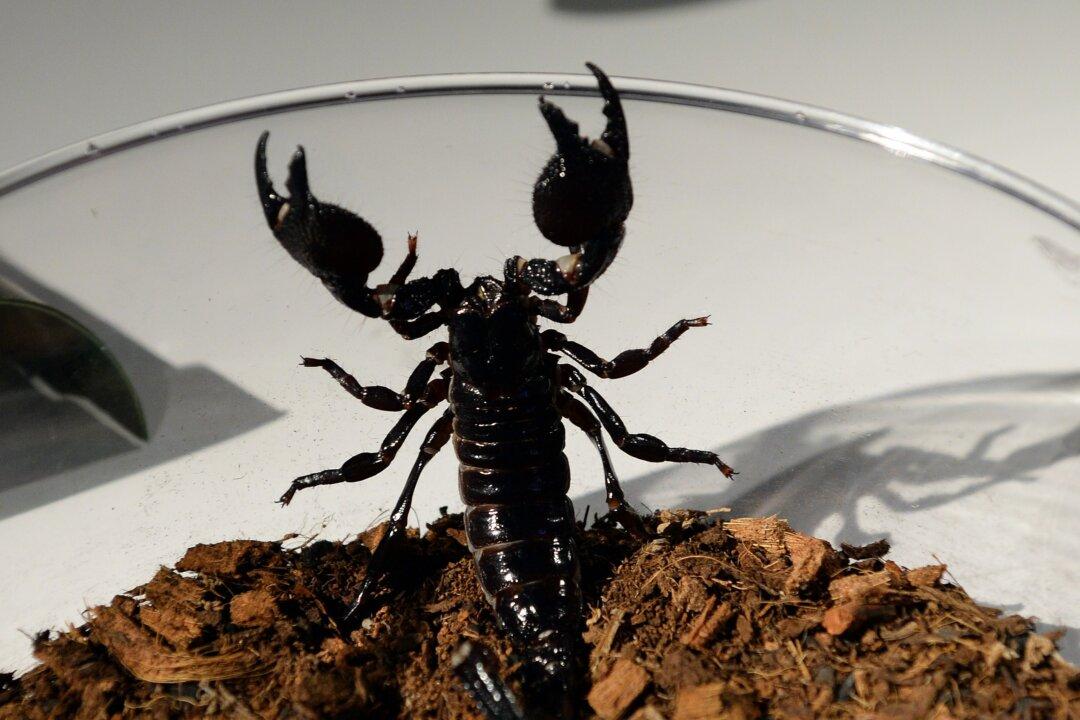Three people have died and hundreds more have been injured after heavy storms brought scorpions into the streets and homes of a city in southern Egypt, according to Egyptian state-run media.
Heavy rainfall, thunder, dust storms, and snowfall in the southern city of Aswan, Egypt, caused both scorpions and snakes to converge on the city last week, Al-Ahram, a government-run Egyptian newspaper, reported.




